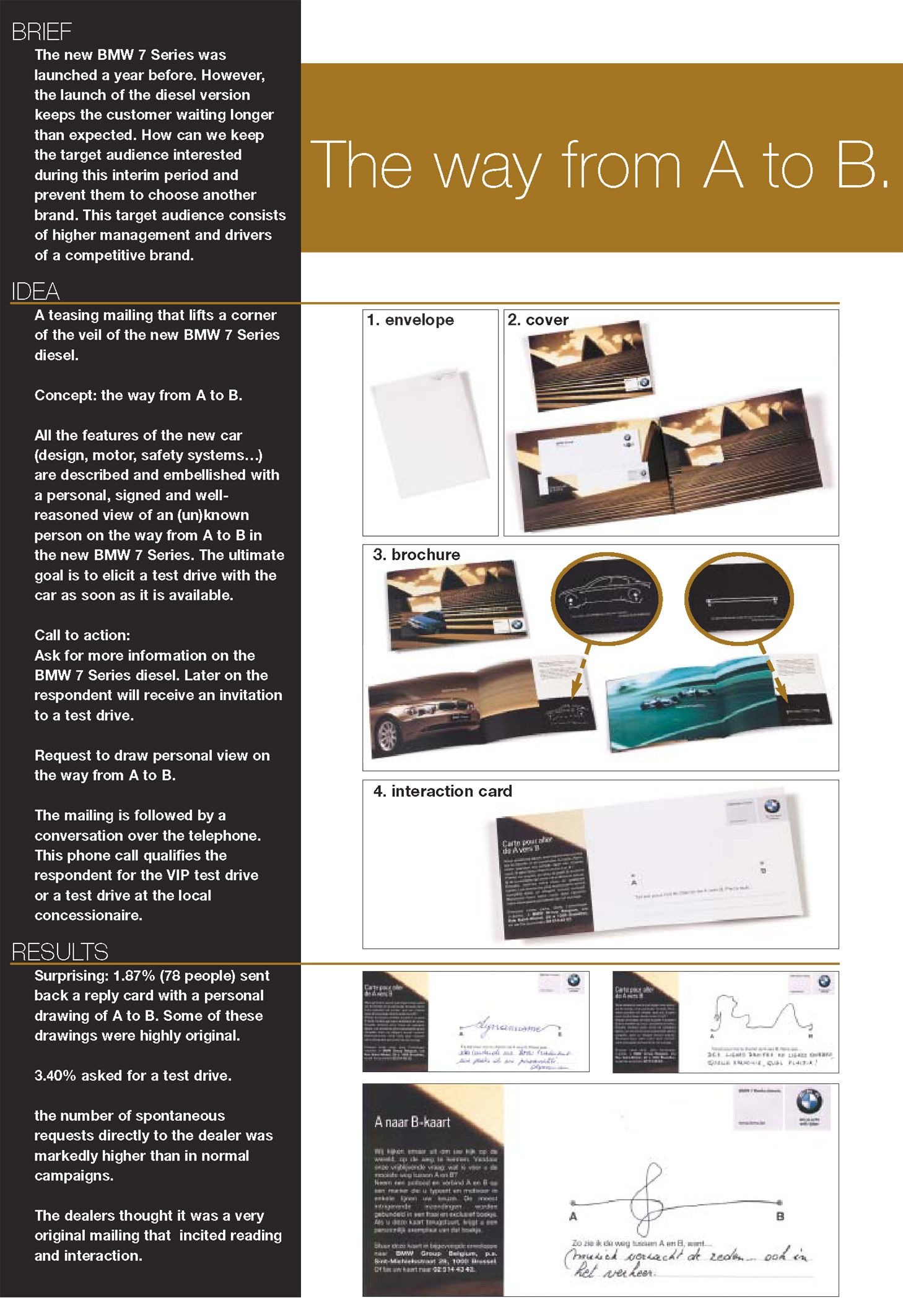Cannes Lions
Eco-effectiveness
WAVEMAKER, London / BMW / 2023


Overview
Entries
Credits
Overview
Background
BMW is a brand that cares deeply about sustainability. In a sector where de-carbonisation is top of the agenda, they set an ambition to have the industry’s most sustainable media plan.
But BMW also care deeply about effective advertising, which meant they had a problem. The media they used to generate sales was still generating carbon, but a reduction in that media investment would also mean a reduction in sales.
While they were able to quantify the carbon footprint of their media plan, this data analysis sat in isolation from their econometric modelling and so was creating a tension between optimising their media plan for sales, and optimising it for reduced carbon output.
With a need to deliver on both effectiveness and sustainability, we had to find a way to fuse these two vital data-sets and optimise their media plan to effectively balance the scales.
Idea
As well as looking at this data as a static review of past performance, we augmented all the diminishing returns curves within our models with carbon emissions data to create a parallel set of ROI and ROC curves. This allowed us to not only see how carbon efficient a given media touchpoint was in the past, but crucially, where the opportunities were to drive future sales growth across BMW’s media mix while still balancing carbon efficiency.
From this data we have built an industry-first new econometric optimisation tool – eco-effectiveness – which allows us to optimise the whole of BMW UK’s media investment based on its long and short term commercial impact, and balance the carbon impact required to generate those sales effects.
Strategy
We needed to treat the carbon emissions of a media channel as a quantity we could optimise towards, we identified we already had a precedent for this in ROI so decided to create a parallel metric – Return on Carbon (ROC).
Our first port of call was to identify the carbon impact of the existing BMW plan. We audited every piece of BMW communications in the UK for the last 3 years and identified the carbon emissions from every media buy. We then fused this data with our econometric outputs, allowing us to calculate, for every media touchpoint, the carbon impact per sale generated (the ROC). This enabled us to categorise channels into 4 groups:
- Doubly inefficient – Low ROI, Low ROC
- Environmental prioritisation – Low ROI, High ROC
- Commercial prioritisation – High ROI, Low ROC
- Best of both worlds – High ROI, High ROI Impact
Outcome
Our industry-first eco-effectiveness tool allows us, for the first time, to easily understand the effectiveness of our media in light of its carbon footprint. With this insight we can establish a baseline for optimisation and show the industry that when it comes to marketing, there doesn’t have to be a trade-off between sustainability and ROI.
We have delivered on BMW’s ambition to have the most sustainable supply chain in the industry and reduced media-driven carbon across their UK marketing activity by 25% YOY, but are also looking ahead to significant improvements in their future output:
Thanks to eco-effectiveness we can forecast:
- A 30% improvement in sales while creating no incremental environmental impact.
- Arguably more importantly, we can reduce the carbon emissions of BMW’s media plan by 25% while maintaining ROI.
For a business with bold sustainability ambitions, this is a truly game-changing strategy (all for a mere £5000!)
Similar Campaigns
12 items







